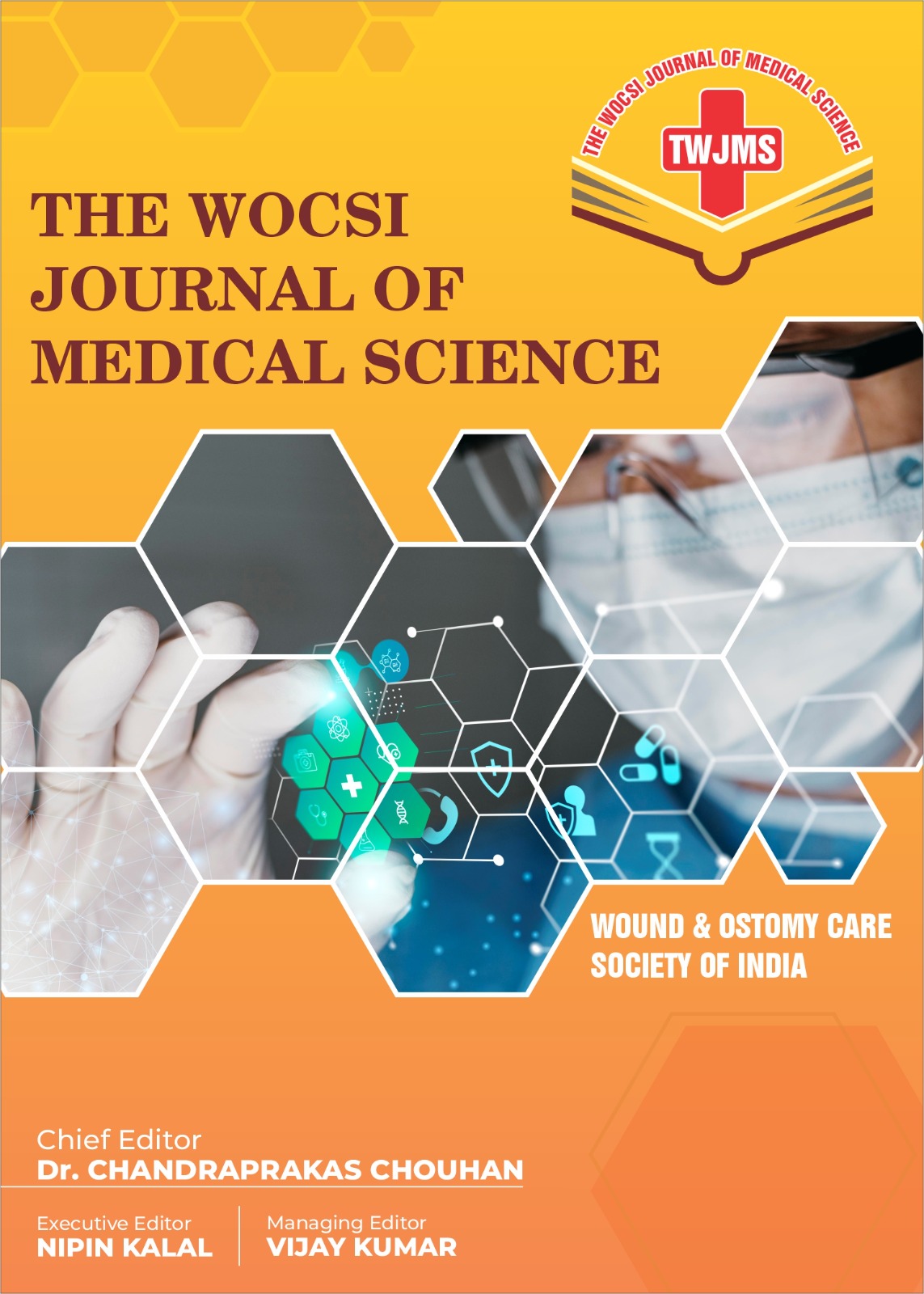A study to assess preventive practices among women with cervical cancer and general population at tertiary care hospital, Jodhpur preventive practices for cervical cancer
Main Article Content
Abstract
Cervical cancer is most prevalent in developing countries and ranks as the third most common type of cancer among women worldwide. Unfortunately, it often presents at a later stage, resulting in high rates of illness and death. The PAP smear, a groundbreaking screening test discovered in 1941, has not been widely accepted. The objective of this study was to assess the level of awareness among rural women regarding the prevention of cervical cancer and to examine the factors that influence this awareness. The global burden of cancer is on the rise, particularly in low- and middle-income countries, leading to poor outcomes in terms of illness and mortality. The lack of knowledge about the risk factors, symptoms, and signs of common cancers, coupled with insufficient community-based cancer prevention programs, poses a significant obstacle to early detection. According to the Indian Council of Medical Research's National Cancer Registry Program, the highest rate of cancer was reported in the North East Region (NER) of India between 2012 and 2014. Aizawl, Mizoram, recorded an age-adjusted rate (AAR) of 271 cancer cases per 100,000 males, while Pampumpare, Arunachal Pradesh, reported 249 cancer cases per 100,000 females. In the Kamrup district of Assam, the AAR incidence was 206 per 100,000 males and 174 per 100,000 females.
Article Details
References
- Fact Sheets by Cancer [Internet]. [cited 2015 Jan 6]. Available from: http://globocan.iarc.fr/Pages/fact_sheets_cancer.aspx.
- Adeleke NA, Komolafe JA. Knowledge, attitude and practice of cervical cancer screening among women of reproductive age group in Osogbo, south western Nigeria. Sex Health Matters 2007;8:70-3.
- Kaarthigeyan K. Cervical cancer in India and HPV vaccination. Indian J Med Paediatr Oncol Off J Indian Soc Med Paediatr Oncol. 2012 Jan;33(1):7–12.
- Montgomery MP, Dune T, Shetty PK, Shetty AK. Knowledge and Acceptability of Human Papillomavirus Vaccination and Cervical Cancer Screening among Women in Karnataka, India. J Cancer Educ Off J Am Assoc Cancer Educ. 2014 Oct 31.
- Zahedi L, Sizemore E, Malcolm S, Grossniklaus E, Nwosu O. Knowledge, attitudes and practices regarding cervical cancer and screening among Haitian health care workers. Int J Environ Res Public Health. 2014 Nov;11(11):11541–52.
- American Cancer Society Recommendations for Human Papilloma Virus (HPV) Vaccine Use to Prevent Cervical Cancer and Pre-Cancers [Internet]. [cited 2015 Jan 9]. Availablefrom:http://www.cancer.org/cancer/cancercauses/othercarcinogens/infectiousagents/hpv/acs-recommendations-for-hpv-vaccine-use.
- Harsha Kumar H, Tanya S. A Study on Knowledge and Screening for Cervical Cancer among Women in Mangalore City. Ann Med Health Sci Res. 2014 Sep;4(5):751–6.
- Lee-Lin F, Pett M, Menon U, Lee S, Nail L, Mooney K, et al. Cervical cancer beliefs and pap test screening practices among Chinese American immigrants. Oncol Nurs Forum. 2007 Nov;34(6):1203–9.
- Abotchie PN, Shokar NK. Cervical cancer screening among college students in ghana: knowledge and health beliefs. Int J Gynecol Cancer Off J Int Gynecol Cancer Soc. 2009 Apr;19(3):412–6.
- Wright KO, Aiyedehin O, Akinyinka MR, Ilozumba O. Cervical cancer: community perception and preventive practices in an urban neighborhood of lagos (Nigeria). ISRN Prev Med. 2014;2014:950534.
- Basu P, Hassan S, Fileeshia F, Mohamed S, Nahoodha A, Shiuna A, et al. Knowledge, attitude and practices of women in maldives related to the risk factors, prevention and early detection of cervical cancer. Asian Pac J Cancer Prev APJCP. 2014;15(16):6691–5.


